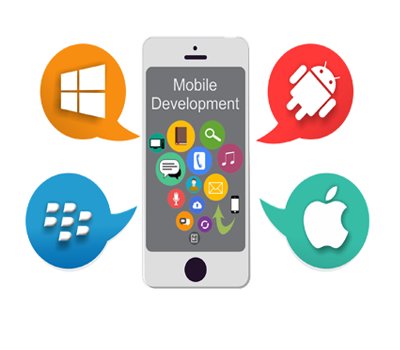
Mobile application development involves creating software applications that run on mobile devices such as smartphones or tablets. It encompasses the entire process of designing, building, testing, and deploying mobile apps for various platforms like iOS (Apple), Android (Google), or sometimes even cross-platform solutions.
Here's a simplified overview of the mobile app development process:
Ideation and Planning:
This stage involves defining the concept of the app, identifying target users, and outlining its features and functionalities. Conducting market research and competitor analysis can also be part of this phase.
UI/UX Design:
Designing the user interface (UI) and user experience (UX) involves creating wireframes, mockups, and prototypes to visualize the app's layout, navigation flow, and overall look and feel.
Development:
This is the phase where developers write the actual code for the mobile app. Depending on the chosen platform(s) and technology stack, developers may use languages such as Swift or Objective-C for iOS apps, Java or Kotlin for Android apps, or cross-platform frameworks like React Native, Flutter, or Xamarin.
Testing:
Testing is crucial to ensure the app functions correctly, is user-friendly, and performs well across different devices and operating system versions. Testing may include functional testing, usability testing, performance testing, and compatibility testing.
Deployment:
Once the app passes testing and meets all requirements, it is submitted to the respective app stores (e.g., Apple App Store, Google Play Store) for approval. This process may involve adhering to specific guidelines and policies set by the app store.
Maintenance and Updates:
After the app is launched, developers continue to monitor its performance, address any issues that arise, and release updates to add new features or fix bugs. Regular maintenance is essential to ensure the app remains relevant and competitive in the market.
Throughout the entire development process, collaboration between designers, developers, testers, and stakeholders is crucial to ensure the app meets its objectives and delivers a positive user experience. Additionally, staying updated with the latest trends, technologies, and best practices in mobile app development is essential for creating successful and impactful mobile applications
Planning
Understanding what you want out of your site and how do you plan to implement it.
Design
We will Create a beautiful, affordable website design for your creative marketing project
Development
We develop content management systems for clients who need more than just the basics
Launch
After successful testing, the product is delivered/deployed to the customer for their use
Maintenance
It is an important step which makes sure that your site works with efficiency all the time
Why Choose Us
Satisfied Customer
Projects Completed
Launched Products
Daily Visits
Valuable Clients























